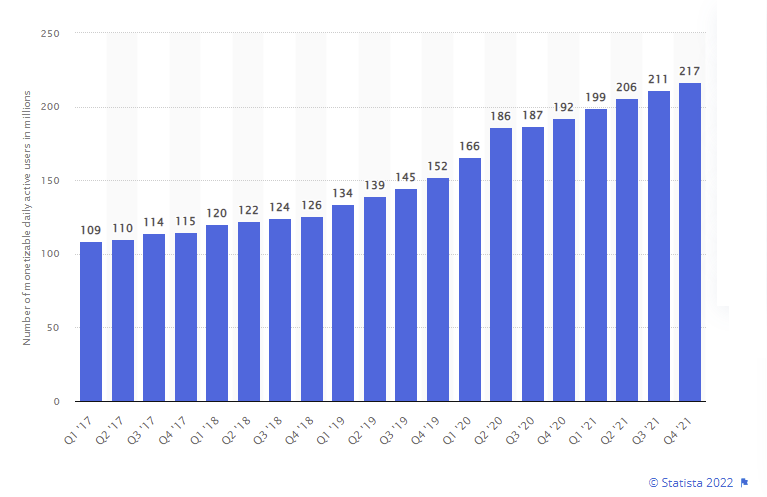Elon Musk certainly has some lofty goals for Twitter, but are they feasible, and can he actually deliver on the targets that he’s setting for the platform as he moves closer to becoming its owner and CEO?
Last week, in a new SEC filing, Musk reported that he had secured around $7 billion in additional funding commitments to solidify his $44 billion Twitter takeover bid. That introduced a range of financial partners into the deal, including Sequoia Capital, Binance, Oracle chief Larry Ellison and Saudi Prince Alwaleed.
In essence, these contributors now become minor shareholders in a Musk-owned Twitter, while he’ll buy out all of the company’s current shareholders once the deal goes through. Which means fewer investors to report to – but then again, these backers aren’t putting billions of dollars behind a Musk-owned Twitter out of the goodness of their corporate hearts, they expect a financial return for their money, which means that Musk must have some plan to turn Twitter into a money-making machine.
And while we don’t know exactly how Musk intends to do that, The New York Times recently obtained a pitch deck that had been presented to these investors, which provides a broad overview of Musk’s Twitter vision.
Among the key points:
- Musk plans to increase Twitter’s user base from the 229 million daily actives it has right now, to 600 million by 2025, then to 931 million by 2028
- The roadmap also outlines a 5x increase in Twitter revenue by 2028, rising from $5b in 2021 to $26.5b
- Advertising income, currently amounting for 90% of Twitter’s intake, will reduce to around 45% of the company’s revenue
- Musk plans to cut around 1,000 staff at Twitter over the next year, before adding around 2,700 new employees by 2025.
As noted, these are some lofty goals, and how, exactly, Musk plans to boost Twitter’s user base so significantly is not clear. But clearly, investors have faith in the Tesla owner’s track record – which could well be the best strategy, as he has been able to turn his other companies into major financial successes over time.
It’s just hard to see a pathway for Musk to make Twitter a more important, attractive option to users. I mean, by now, everybody knows what Twitter is, and almost anyone who’s interested has signed up. What can he add to make non-users more interested again, and make current users want to spend even more time in the app?
That element is unclear, and I’m not sure Musk himself is entirely solidified on that middle step. But he and his team must have something in mind, these numbers didn’t just come from nowhere. But if live-streaming, Fleets, Moments, Spaces – if all of these additional elements haven’t made Twitter a must-use app yet, what’s next on the cards to sweeten the app offering?
A key focus element for Musk is subscriptions, and boosting the amount of users that pay to access the app, which is one pathway that Twitter can take to reduce its reliance on ad revenue. Twitter Blue, thus far, has not been a success – but in his plan, Musk also notes that he expects Twitter Blue subscribers to rise to 69 million users by 2025.
Why will users pay to use Twitter Blue more in future?
Part of Musk’s push is that he will look to use subscriptions as a form of verification, giving paying users a checkmark of some sort which delineates that they are, in fact, a human, and that they’re registered their details in the app.
That could also negate the influence of bots – though not entirely, as Musk has said that Twitter will always remain free, at least on some level.
Twitter will always be free for casual users, but maybe a slight cost for commercial/government users
— Elon Musk (@elonmusk) May 3, 2022
Maybe, then, the 69 million subscribers that he’s targeting could actually be business accounts – but even so, it’s hard to imagine many brands will be happy to pay for basic access, without some sort of additional sweetener to Twitter’s subscription offerings.
Though if he can raise the user count, brands will increasingly want in, and if Musk made all brands pay for Twitter access, you can see how this could become more significant.
If he can boost Twitter’s usage – which, it’s worth noting, hasn’t risen in any significant way for some time.

As you can see in this chart, Twitter’s Monetizable Daily Active User count has increased by 108m over the past five years. Under Musk, he expects to see that jump by 371m – close to 200%, growth – in the next three.
I don’t know what Twitter can do to achieve this, but maybe, Elon has a plan. Maybe there is a pathway that no one else can see as yet, and it’s possible, somehow, that it will see unprecedented growth once Musk steps in as CEO.
I don’t know – it seems optimistic, but again, Elon Musk has defied popular belief in the past, and come out on top.
This, though, would be a next-level magic trick, while the public nature of it, too, will put a lot of pressure on Musk to prove his perceived genius.
We’ll soon find out – according to reports, Musk will take over as interim Twitter CEO shortly, as the final details of his takeover deal go through.
Twitter Expands Test of TikTok-Like Display Format in its Explore Tab



